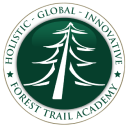Online Middle School
Grade 8 Physical Science
This course follows Florida’s Next Generation Sunshine State Standards for 8th grade science. This course offers a more in depth look at physical sciences, such as chemistry, physics, and astronomy. The students will review the nature of science and the steps of the scientific method.
The students will then learn what matter is and will review its phases. They will learn about elements and atoms, including the structure of and organization of atoms. The students will then learn about how and why atoms join together to form compounds and molecules. They will then learn the differences between mixtures and solutions and how a solution can be described. The students will then learn about the different types of chemical reactions that can occur. Radioactivity and radioactive isotopes will be explored so that the students will learn what they are and how radioactive exposure is changed by distance and time. The students will then learn about the different types of energy and how energy can be transformed from one type to another.
M/J Physical Science Course Outline
They will explore work and simple machines, along with forces and motion. The students will learn about the properties of magnetism and electricity and how they are related to each other. The differences between temperature and heat will be explained while the students learn about how heat travels. Students will also learn about the nature of light and why some materials absorb light while others do not. They will review the process of photosynthesis, including how the process came to be understood by scientists.
Finally, the students will learn about the universe, including the stars, the Sun, and theories of the origin of the universe.
Course Objectives
After completing the course, students will be able to:
- Explain and use the methods and tools of scientific inquiry, applying them across scientific disciplines..
- Identify properties of an atom, element, compound, and mixture, and apply knowledge to use of formulas and equations.
- Describe the concepts of friction, gravity, waves, and kinetic and potential energy.
- Apply knowledge of structure and function of organisms to categorize them taxonomically and compare and contrast across the taxonomic levels.
- Define and give examples of adaptations and explain how they apply to genetics and evolution.
- Describe energy flow in terms of food webs and trophic levels, involving biotic and abiotic components.
- Identify features of the major biomes.
- Describe the environmental cycles involving water, nitrogen, and carbon and discuss the global implications of altering them.
- Identify sources of environmental distress and discuss different measures that humans are taking, or may take in the future, to improve the health of the planet.

Course Outline
Course Introduction
- Introduction
- Course Description
- Understanding Plagiarism
- Pretest
- Assignment: Pretest
- Course Links
- MLA Formatting MSWord 2007
- MLA Documentation updates
- MLA Citation
- MLA Incorporating Sources
Energy
- Forms of Energy
- Assignment: What is Energy Lab
- Changing Energy
- Handout: Changing Energy
- Assignment: Changing Energy
- Classifying Energy
- Quiz: Energy
Matter & Energy In The Environment
- History of Photosynthesis
- Essay: History of Photosynthesis
- Anatomy of a Leaf
- Photosynthesis Overview
- Cellular Respiration
- The Carbon Cycle
- Essay: Energy and Mass are Conserved
- Quiz: Matter and Energy in the Environment
The Universe
- The Universe
- Matter in the Universe
- Essay: Gravity
- Stars
- Types of Stars
- Assignment: Star Life Cycle
- Worksheet: The Universe Quiz
Our Solar System
- Modeling Our Solar System
- Organization of Our Solar System
- Handout: Characteristics of Our Solar System
- Assignment: Characteristics of Our Solar System
- The Sun
- Relationships of the Earth, Moon, and Sun
- Quiz: Our Solar System
Exploring Space
- Distances in Space
- Spectroscopy and EM Spectrum
- Spectral Signatures
- Assignment: Normal & Active Galaxies
- Future of Space Exploration
- Essay: Space Exploration: Worth it?
- Midtest
- Assignment: Midtest
- Quiz: Space Exploration
Course Survey
- Course Survey
- Handout: Course Survey
- Assignment: Course Survey

